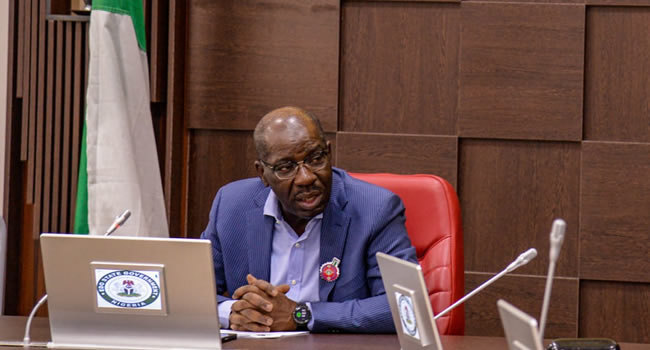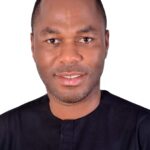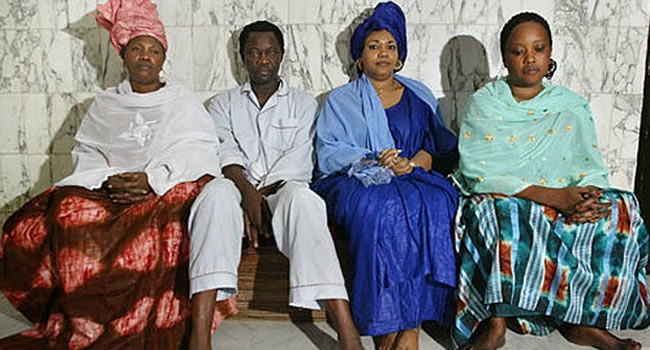When a man finishes eating and refuses to wash his hands, even the dog begins to suspect him. That, in essence, is why the Edo State House of Assembly’s probe into the Museum of West African Art (MOWAA) and Radisson Blu Hotel Project is not only proper—it is overdue.
Since the revelation that over ₦3.8 billion of public funds was sunk into MOWAA without clear state equity, and ₦17.5 billion was poured into the Radisson Blu Hotel for just a 20% stake, Edo citizens have every right to ask: where did our money go? Accountability is not persecution. Transparency is not vendetta. A government that probes its predecessor is not wasting time; it is preserving the future.
Some voices—one in particular hiding behind the pseudonym “Samuel Iyobosa Osemeke”—have tried to paint this probe as a distraction. But one must ask: how can seeking clarity over ₦21 billion of taxpayer funds be a waste, when the probe itself might not cost up to 1% of that amount? Only those afraid of light prefer darkness. If the hands of the former administration are clean, they have nothing to fear.
The truth is simple: every kobo spent by Governor Godwin Obaseki’s administration belonged to the people of Edo, not his personal money, not his household, not his company, and certainly not his political circle. Whatever credit he deserves for projects executed with public funds cannot excuse accountability. The people own both the land and the resources; the governor was merely a trustee. Trustees must render account. That is the essence of democracy.
Governor Monday Okpebholo’s stand on this issue reflects leadership guided by principle, not politics. He has refused to be cowed by the predictable cries of “witch-hunt” from those who benefitted from the old order of reckless governance full of flowering words but empty of truth, conscience or accountability. The Edo State House of Assembly deserves commendation for its courage in demanding transparency now. In a nation where many lawmakers are content to clap for the executive, Edo’s legislators have chosen to hold power accountable—exactly as the Constitution empowers them to do.
Every responsible government must establish a culture of review and audit. It should be standard operating practice that every administration probes its predecessor. Not out of malice, but out of duty—to warn the current, to guide the future, and to remind everyone that public office is a trust, not an inheritance.
Edo people must now look beyond partisan sentiments and see this probe for what it is: a fight for their hard-earned taxes, a defence of their commonwealth, a protection against similar occurrence for both the present and future administrations. Those who looted the treasury in nicely made suits, holding laptops and speaking sweet English, must know that the days of impunity are over. Accountability has come knocking, and it will knock on every door—today’s and tomorrow’s.
An Nsukwa proverb says, “When you point your left hand to your father’s house, you are calling for cleansing, not destruction.” This probe is cleansing, not destruction. It is the rebirth of Edo’s dignity, the reawakening of a people tired of being deceived by polished thieves in starched suits and fraudulent MoUs.

Governor Okpebholo’s message is clear: Edo will no longer tolerate waste, opacity, or arrogance in governance. If Obaseki and his men have nothing to hide, they should welcome the probe. After all, truth is like smoke—you cannot hide it under your cap for long.
Let the facts come out. Let accountability take root. Allow the probe to be and let Edo state rise and shine again.
Saintmoses Eromosele (SME) writes from his Cassava farm in Ewu
Saintmoses Eromosele
Saintmoses Eromosele is a Nigerian scholar, community organiser, and entrepreneur. He is the Executive Director of the Oneghe Sele Foundation and CEO of multiple ventures spanning education, healthcare, property, media, and technology. A trained legal mind with academic grounding in law, sociology, economics, management, and public administration, he is widely known for his advocacy on justice, civic responsibility, and equitable governance. He writes from his cassava farm in Ewu, Edo State.





